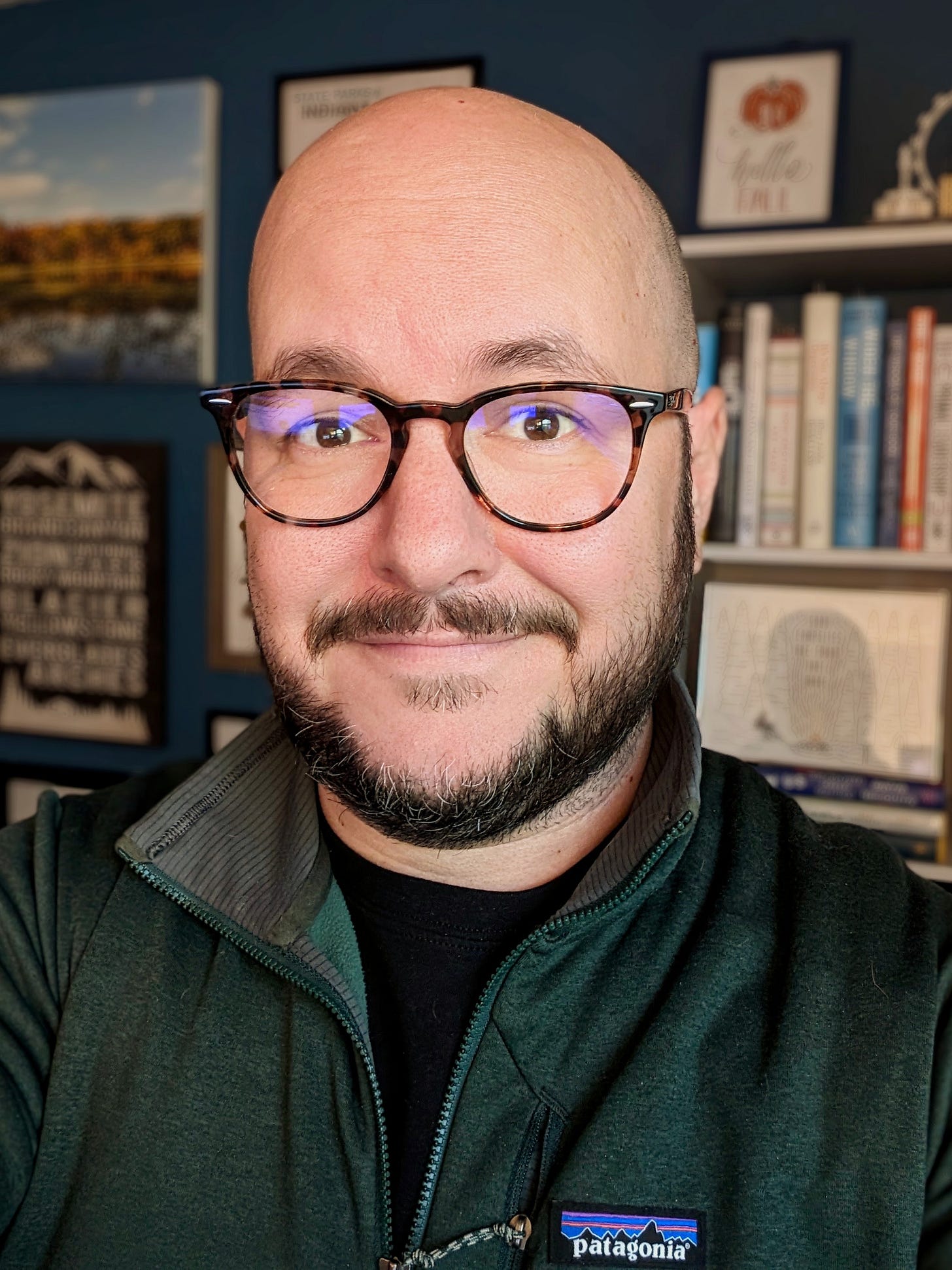Two Kinds of Optimism, Two Kinds of Pessimism
My book is now re-released! A re-introduction and recommendations.
Hello! There have been some new subscribers recently, so I thought I’d do a quick re-introduction for everyone.
I’m Adam Bouse — a full-time coach and possibilitarian.
“Possibilitarian” is a word that reflects my desire to stay awake to the idea of possibilities, rather than limited by what has been or is. I’m not always a “glass half full” person, but I’ve come to see clearly that optimism is a teachable, trainable skill.
With training and certification in emotional intelligence and brain-based coaching, I have spent much of my career learning about EQ, resilience, positive psychology, and empathy. Even before I was a coach, I was learning, studying, and looking for ways to help myself and others learn, grow, and thrive.
In this newsletter, you’ll find a few things:
A reflection on my own pursuit of the mindset of optimism and intentional living
Insights, anecdotes, and research about about empathy, optimism, resilience, and positive psychology more broadly
Links to articles, podcasts, and what I’m finding interesting, to spark curiosity about people and the world around us all
I’m grateful you have subscribed because it means you find the idea of seeking possibilities valuable and worth your time. I don’t take that for granted. I’d also love for you to share this with your friends, your enemies, your followers, and your grumpy but lovable co-workers.
Now, on to this week’s dispatch.
In 2016, I self-published a book, What Do You Want to Change? Making Sense of Change and Planning to Thrive.
I’m excited to announce an updated version is now available, including a new chapter on optimism! I’m including an excerpt from that new chapter in today’s newsletter.
Don’t wait to order the paperback!
We all know the metaphor—glass half empty or glass half full: which kind of person are you?
Some would call themselves optimists and say "half full." Others would call themselves pessimists and say "half empty." Maybe you want to rebrand yourself away from pessimism, so you call yourself a "realist." Engineers might respond, "The design calls for too much glass." A skeptic would question if it's really water. A scientist might argue it's full… of hydrogen and oxygen in various states of matter.
I've noticed over the years that some people relish the idea of not being optimistic. "I've seen too much," some might say. They prefer to be called realists or retort, "I'm just calling it like I see it."
To be fair, the research on optimism suggests it's actually more important to avoid pessimism than it is to be actively optimistic (being pessimistic correlates with increased stress and burnout). Though, do you know what the best antidote to pessimism is? Optimism.
Two Kinds of Optimism, Two Kinds of Pessimism
Your brain is always making predictions (and largely without your awareness of how the calculations are taking shape).
And since our brains work as prediction engines (trying to anticipate what’s going to happen and applying what we’ve experienced in the past that might help us stay safe, comfortable, and alive), optimism and pessimism might be described as two sides of a continuum that influence the predictions our brain is making about the future.
I’m going to lay out four somewhat distinct points on this continuum. One important note before we get into the four points: “disposition” as it’s used in the definitions below describes a person’s typical, inherent tendencies in how they behave, think, or feel. Humans are complex (“I contain multitudes,” as Whitman said), so know that circumstances and experiences like trauma can have significant impacts on anyone’s disposition.
To keep reading What Do You Want to Change?, order the book today!
To Check Out
Currently Reading:
Slaugherhouse-Five by Kurt Vonnegut
Bikeshedding / Decision Lab (article)
“Why do we focus on trivial things?” The Decision Lab is my go-to reference for all things related to cognitive biases. Bikeshedding, “also known as Parkinson’s law of triviality” is one of my favorite terms I’ve learned from TDL.
391: High Priest of Beef Days / Dear Hank & John (podcast)
I’ve long been a fan of Hank and John Green (aka vlogbrothers) on YouTube. How did I not assume they’d have a hilarious, brilliant, existential, and utterly entertaining Q&A podcast as well? I just started listening this week and will now be working through the archives exhaustively.
Aphantasia / Radiolab (podcast)
“Close your eyes and imagine a red apple. What do you see? Turns out there’s a whole spectrum of answers to that question and Producer Sindhu Gnanasambandan is on one far end. In this episode, she explores what it means to see – and not see – in your mind.”
Kevin Costner / Armchair Expert with Dax Shephard (podcast)
A great conversation about careers, taking chances, trusting yourself, and a remarkable movie career that doesn’t seem to be slowing down.
How DnD Became a Career: Brennan Lee Mulligan’s College Journey / Study Hall (video)
I discovered BLM on Instagram through the Dropout game shows “Game Changer” and “Um, Actually.” This long-form interview was both funny and fascinating. Hearing other people’s stories is a constant source of learning and optimism for me.
p.s. I have open coaching spots! Coaching can help anyone become better observers of themselves and to make good choices. Just reply and we can chat more.
This dispatch was written to music, including the new Lake Street Dive song, Good Together.





You wrote a book? 🥹 That is amazing, Adam! 🔥 I feel inspired when you talk about coaching-related topic—you have a way of revealing insights that are either super relatable or make me think in new ways. I can only imagine your book is just as incredible.
Thank you for being you!
I am still in awe. I don’t really know the difference. You took all the steps to create a book and make it available for production and sale. That’s like a dream to me ☁️☁️☁️